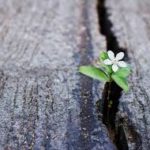coronavirus
Onward Thru the Fog
 I want to write a little more about what I see us going through, collectively, as a culture right now in this time of the Covid-19 pandemic.
I want to write a little more about what I see us going through, collectively, as a culture right now in this time of the Covid-19 pandemic.
I know this is a hard time for everyone. In renowned grief expert Dr. David Kessler and shame/vulnerability researcher Dr. Brene Brown’s remarkable recent talk on Grief and Finding Meaning, they agreed that our own grief is always the biggest. Which is to say that regardless of the extent or type of loss everyone has had, our own grief feels the biggest, and that is a normal feeling!
We are each experiencing individual losses in this time of the coronavirus – loss of routine, loss of freedom to run around to wherever we want whenever we want, perhaps loss of loved ones, loss of our own health, loss of job/businesses or income, loss of school for our kids, loss of vacation or travel plans. The list goes on and on.
And, then, together we are all collectively experiencing this unknowing when it comes to the future. How fast will things open up? When will they come up with widespread testing? When will there be a vaccine and how will it be distributed? When will the coronavirus abate? Will things get better in the summer? Will there be a big recurrence in the fall and the winter? When will the economy recover?
to the future. How fast will things open up? When will they come up with widespread testing? When will there be a vaccine and how will it be distributed? When will the coronavirus abate? Will things get better in the summer? Will there be a big recurrence in the fall and the winter? When will the economy recover?
Nobody knows the answers to these questions. Nobody. Experts and pundits can guess. We can and do guess too. But we don’t know for sure.
So, there is the biggest lesson for us as humans, in my opinion. Living with this not knowing. Staying in the present. Slowing down.
Oh yes we still have to make some plans where we need to for, for instance, continuing education for our kids, care for our elders, projects ongoing at our jobs, getting supplies in for sheltering in place. Other than that, though, many of us are finding it new and interesting that we have time to think about things we normally don’t have a chance to get to.
We may be turning more to thoughts about our relationships. Our lives. Our past. Our futures. Many of us are also turning towards those piles in closets or garages or basements, and going through stuff we have put off looking at. Several people I know sorting through old photographs. Some people’s gardens are looking pretty darn good! 😊
But most importantly, I want to say that we can admit to ourselves and each other that this unprecedented “calamity” as Eckhart Tolle recently called it, is an ongoing challenge.
We need to give ourselves a lot of slack – it’s an up and down ride – sometimes we’ll feel stoic and pretty ok, sometimes we can even see the benefits of slowing down and not racing around as much as used to. And sometimes we’ll feel crabby. Irritable. Or sad. And fearful. Quite possibly exhausted – emotionally and physically.
We are ALL going through these feelings. Try to journal so you have a place to express yours. If you have a therapist, keep those appointments going online or on the phone. If you can gather family or friends together in Zoom or FaceTime, talk some about how it’s really going. Ask for help when you need it. Don’t let feeling shy hold you back from taking the risk of showing some vulnerability. You might find that doing that strengthens and deepens your bonds with friends.
Try not to get too far ahead of your skis. Keep breathing. Find creative distractions. Don’t watch too much hysterical news. Take naps. Take walks. You know the drill. I will check in more later! Meanwhile, as we say in San Francisco: Onward Thru the Fog!
Sending love, Nancy
May you be safe.
May you be well.
May you be protected.
May you be peaceful and live with ease.
Fear is Part of Grief in Coronavirus Times
 As we navigate through the uncharted terrain of coronavirus days, weeks and perhaps months, most of us are experiencing: fear, confusion, frustration. Things feel surreal. Where do we turn? What do we do? Can we make plans for the future? Not really.
As we navigate through the uncharted terrain of coronavirus days, weeks and perhaps months, most of us are experiencing: fear, confusion, frustration. Things feel surreal. Where do we turn? What do we do? Can we make plans for the future? Not really.
The immediate becomes paramount. How do we buy groceries today and stay safe? For those of us who are health professionals, how do we teach our patients (and ourselves) to adjust to video conferencing and/or phone sessions?
Some of my clients wonder who to let in their homes. “Can my housekeeper still come? Can my nanny still come when I am working from home and need their help taking care of my kids? What about the construction project going on in my kitchen – can the carpenter continue?”
We are all figuring things out day by day, instance by instance. There is no  rule book on how to proceed now. What if you work at a grocery store or your family member does? Do you or they still go in to work? What about paying the bills if there is no paid time off?
rule book on how to proceed now. What if you work at a grocery store or your family member does? Do you or they still go in to work? What about paying the bills if there is no paid time off?
Yesterday a friend sent me a very insightful article from the Harvard Business Review called “That Discomfort You’re Feeling is Grief”, an interview with David Kessler, the world’s foremost expert on grief.
Kessler co-wrote with Elisabeth Kübler-Ross On Grief and Grieving: Finding the Meaning of Grief through the Five Stages of Loss. His new book adds another stage to the process, Finding Meaning: The Sixth Stage of Grief. Kessler also has worked for a decade in a three-hospital system in Los Angeles. He served on their biohazard’s team. … He is the founder of www.grief.com which has over 5 million visits yearly from 167 countries.
Kessler describes the grief we feel over losses in our daily lives, e.g. going to work, sending the kids to school, going out to eat or to movies, not getting to visit our loved ones in nursing homes or hospitals. (Look at Amy Klobuchar who just gave a poignant interview about not being able to visit her husband who has been hospitalized with COVID19!) Kessler says:
We feel the world has changed, and it has. We know this is temporary, but it doesn’t feel that way, and we realize things will be different. Just as going to the airport is forever different from how it was before 9/11, things will change and this is the point at which they changed. The loss of normalcy; the fear of economic toll; the loss of connection. This is hitting us and we’re grieving. Collectively. We are not used to this kind of collective grief in the air.
Kessler goes an illuminating step further – he teaches that we are also experiencing “anticipatory grief“.
Anticipatory grief is that feeling we get about what the future holds when we’re uncertain. Usually it centers on death. We feel it when someone gets a dire diagnosis or when we have the normal thought that we’ll lose a parent someday. Anticipatory grief is also more broadly imagined futures. There is a storm coming. There’s something bad out there. With a virus, this kind of grief is so confusing for people. Our primitive mind knows something bad is happening, but you can’t see it. This breaks our sense of safety. We’re feeling that loss of safety. I don’t think we’ve collectively lost our sense of general safety like this. Individually or as smaller groups, people have felt this. But all together, this is new. We are grieving on a micro and a macro level.
 What to do about these feelings? Kessler recommends being aware of them. Remembering that this is a collective experience – you are not alone in what you are feeling. And, he talks about tools such as I wrote about in my last blog post: being present, letting go, finding perspective, helping others… He ends the interview with a very helpful reminder based on his experience: “This too shall pass.”
What to do about these feelings? Kessler recommends being aware of them. Remembering that this is a collective experience – you are not alone in what you are feeling. And, he talks about tools such as I wrote about in my last blog post: being present, letting go, finding perspective, helping others… He ends the interview with a very helpful reminder based on his experience: “This too shall pass.”
This is a temporary state. It helps to say it. I worked for 10 years in the hospital system. I’ve been trained for situations like this. I’ve also studied the 1918 flu pandemic. The precautions we’re taking are the right ones. History tells us that. This is survivable. We will survive. This is a time to overprotect but not overreact.
Much appreciation to David!